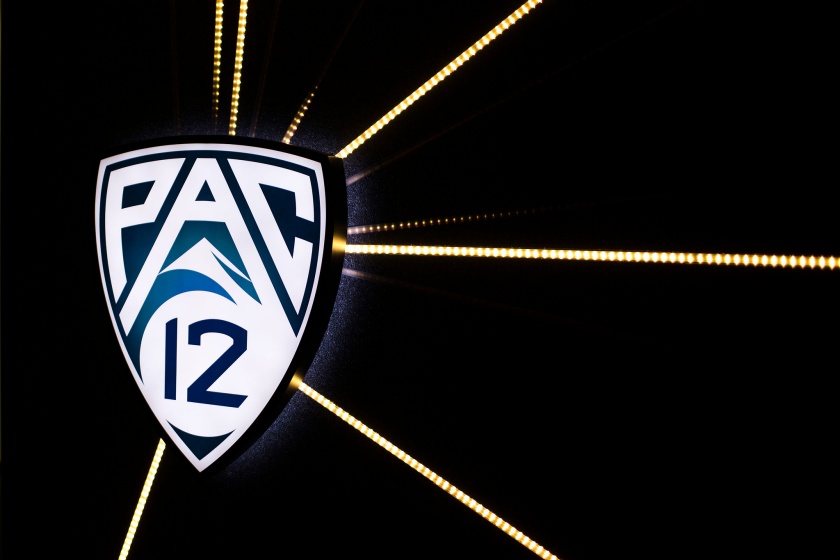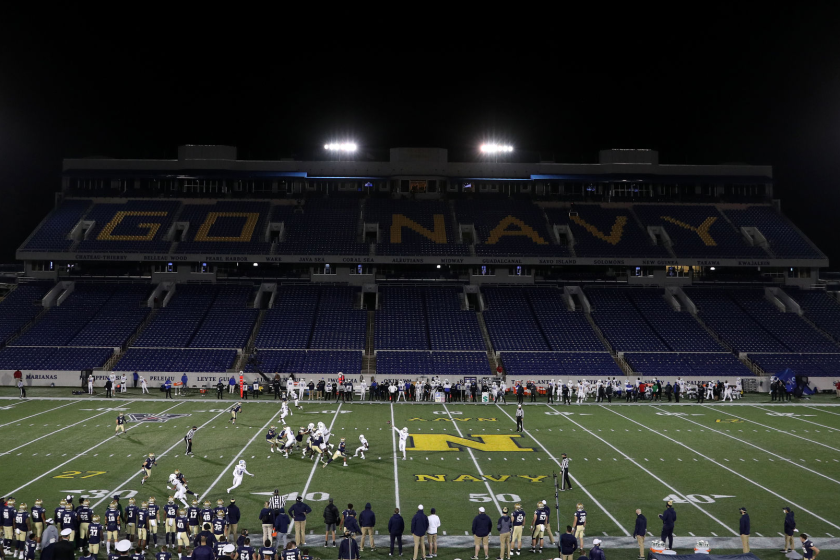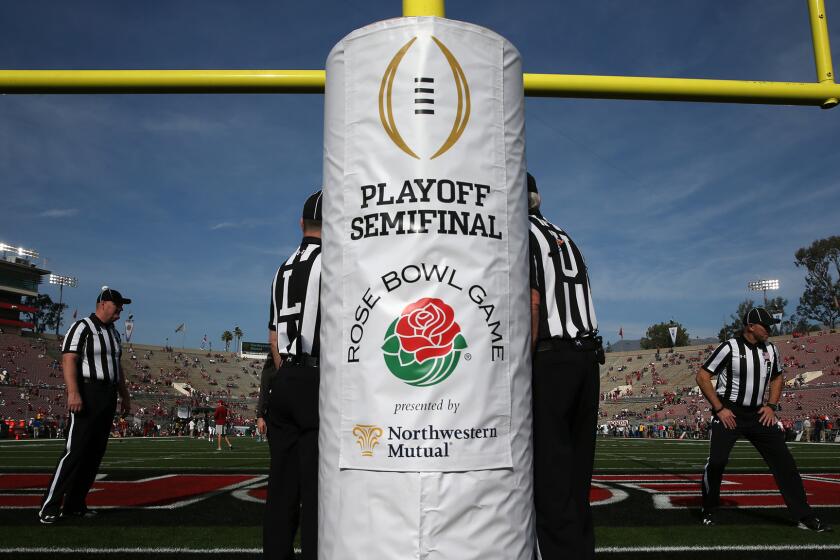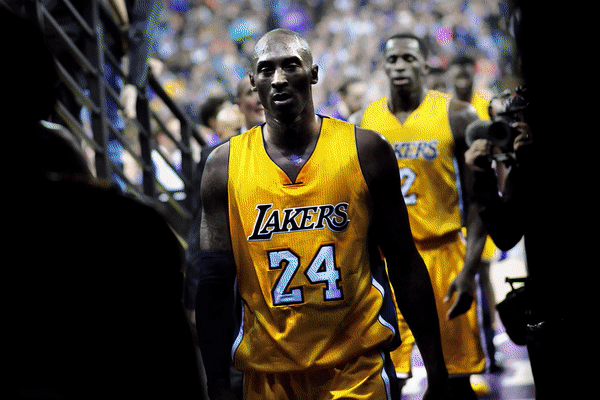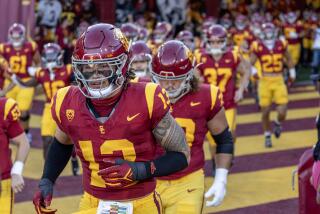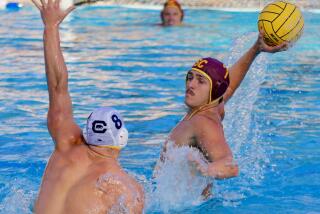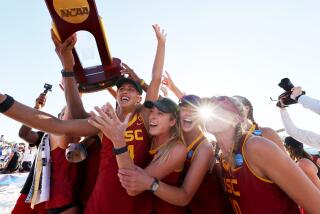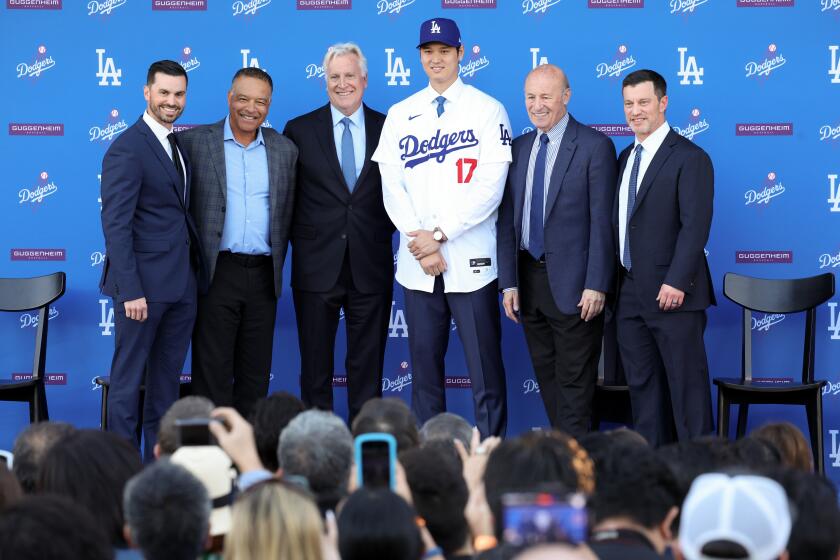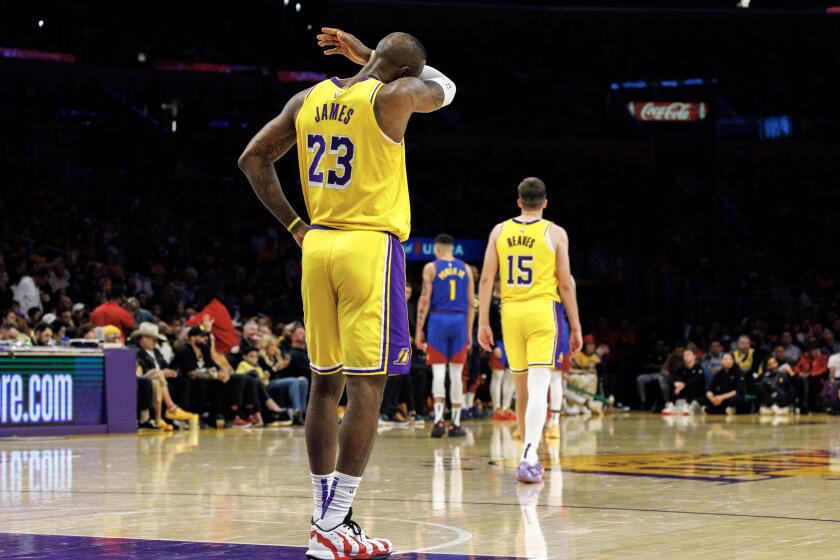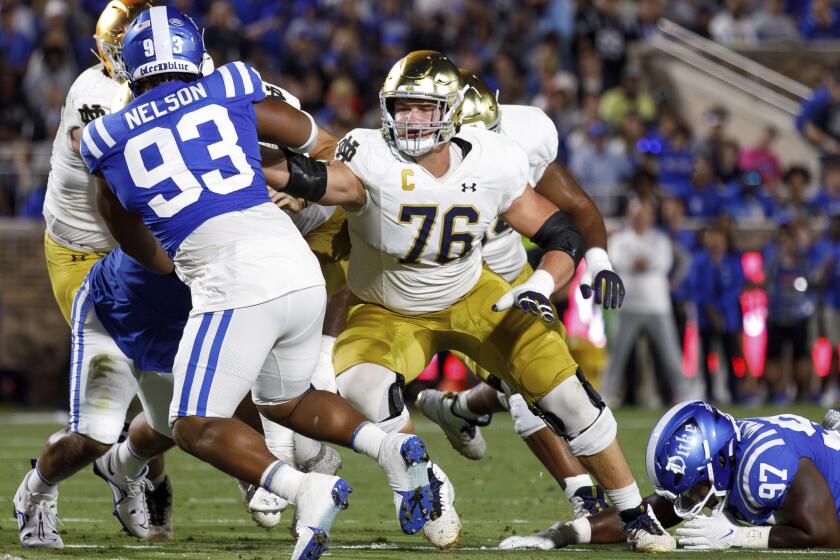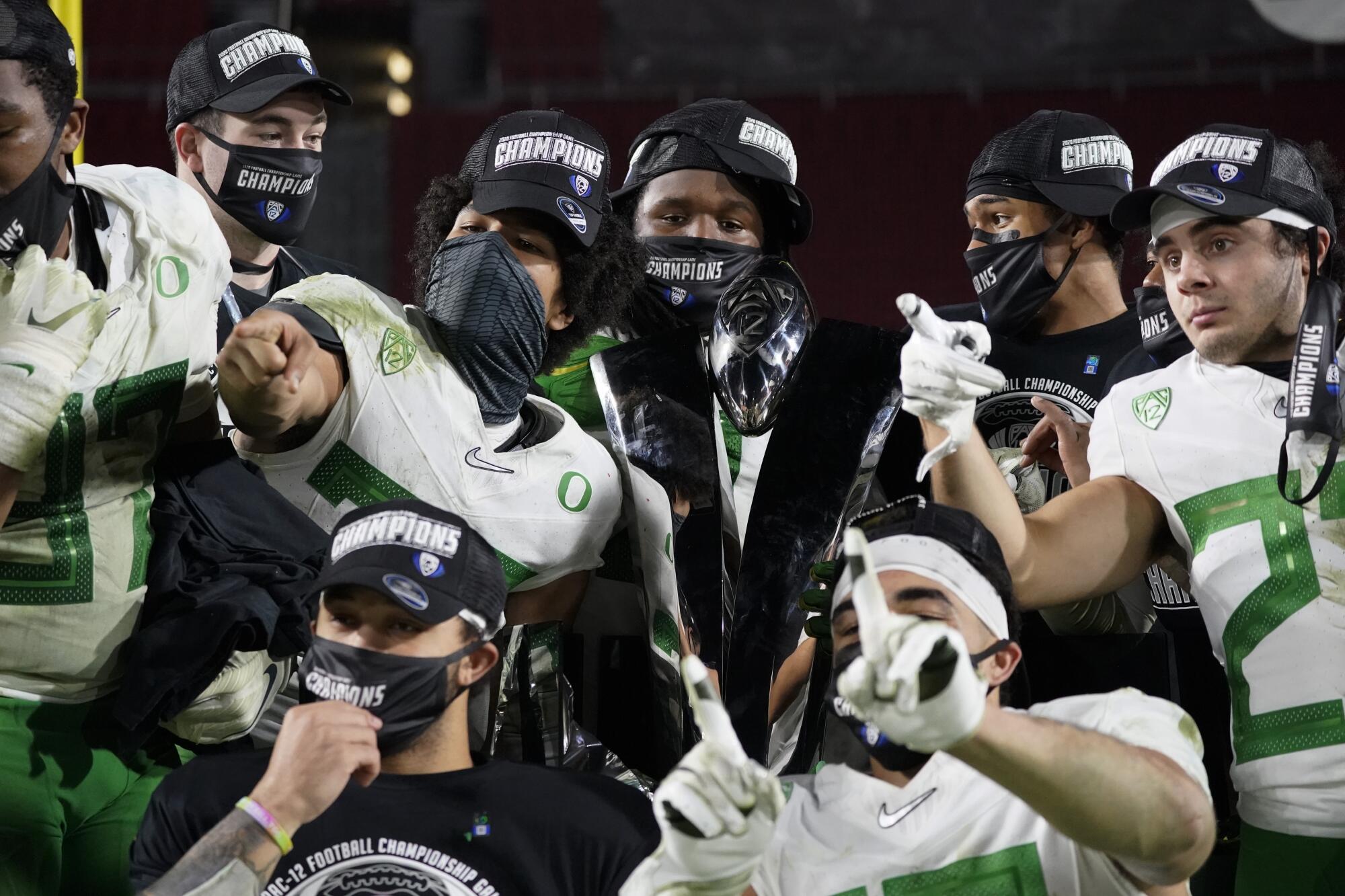
Fifth in a series of Times Sports essays looking at the some of the biggest sports moments and storylines of 2020.
On the first day of July, University of California athletes Andrew Cooper and Valentino Daltoso met over FaceTime to discuss their mounting frustration with how college athletic departments were handling their preparation to play football during a pandemic.
A few weeks before, 30 UCLA football players had put their names on a document demanding that the school guarantee the scholarship agreements of any player who chose to opt out to protect their health and safety. But Cooper, a cross-country runner, and Daltoso, a football player, were discussing something more radical — bringing together players from more than one school to pursue action. Quietly, the Pac-12 “We Are United” movement was born in Berkeley.
On the last day of July, the Pac-12, blissfully unaware of what was happening across the San Francisco Bay, announced a revised 10-game, conference-only football schedule.
Two days later, a group of about a dozen Pac-12 players put their names behind a manifesto written for The Players’ Tribune, which began: “To ensure future generations of college athletes will be treated fairly, #WeAreUnited. … Because NCAA sports exploit college athletes physically, economically and academically, and also disproportionately harm Black colleges athletes, #WeAreUnited.”
The letter of demands, and threat of a boycott, sent by a group of Pac-12 football players last weekend called for payment of a debt long overdue, and it may change college football forever.
How’s that for easing into an August Sunday morning?
Chronicling college sports in 2020 is an experience I’ll never forget. Friends often asked me this year, “So what are you writing about with no sports going on?” The answer was, “Stuff that’s way more interesting than what I normally write about, actually.” So much about America has been laid bare during the pandemic, and that has been true for college sports.
There was no book on how to play football outside of a bubble while respecting a deadly virus at the same time. It was clear from the outset that both the NFL and Football Bowl Subdivision of college football were going to do whatever it took to have their seasons. There was too much money on the line.
The NFL had an advantage with professional players and a union to negotiate terms. The league could enforce health and safety standards among its franchises.
College football always was going to mirror the country’s messier struggles with COVID-19. Players are treated as employees but not classified as such, with no union fighting for their interests. Plus, the NCAA generally relies on schools to enforce health standards.
After initially being tenuous about the risks COVID-19, college football power brokers realized revenues could still take precedence over player safety.
The #WeAreUnited players made demands regarding health and safety (protect scholarships, void COVID-19 liability waivers, enforce player-approved protocols); lavish spending (reduce “excessive pay” to Pac-12 commissioner Larry Scott, administrators and coaches); racial injustice (direct 2% of conference revenues to support financial aid for low-income Black students); and economic equity (cover medical expenses for six years after graduation, distribute 50% of each sport’s revenue evenly to the athletes who play that sport).
Were all of these demands realistic? Certainly not, but that wasn’t really the point. For the first time, Pac-12 athletes had organized and used their voice.
“We were told we would be playing at our own risk,” said Kassidy Woods, then a Washington State wide receiver who joined #WeAreUnited. “It just didn’t make sense. We were putting our lives on the line, and there was no mandatory testing like there is now. ”
In the rush of the news cycle, you may have missed Woods’ tale. The day after #WeAreUnited went public, he spoke by phone with Washington State coach Nick Rolovich. According to a recording obtained by the Dallas Morning News, Rolovich told Woods, “That’s going to be an issue if you align with them as far as future stuff. The COVID stuff is one thing. But joining this group … is going to change how things go in the future for everybody, at least at our school.”
Woods announced he was entering the NCAA transfer portal a month later.
“In the grander scheme, what we established in August 2020 is cementing in history that athletes shouldn’t settle for anything less.”
— California cross country runner Andrew Cooper
Most of the 19 #WeAreUnited players who pleaded their case to Scott in an hourlong call in August eventually joined their teams and played their seasons. The Pac-12 revived its fall season only to end up canceling 10 of its 41 scheduled games and stage a championship game with a second-place team from the North division, Oregon, when champion Washington did not have enough eligible players because of a COVID outbreak. The Ducks, of course, beat USC 31-24.
I tracked down Woods because I wanted to know how he felt watching it all from home in Texas. He said he had no regrets and was glad his parents had taught him to stand up for what’s right.
“It just goes to show they care about making money more than they care about the athletes that make them the money,” Woods said of the season. “What’s so sad about it is athletes still don’t realize the power that they have, especially during a pandemic like this.”
Now averse to the money-hungry FBS, Woods decided to transfer to Northern Colorado of the Football Championship Subdivision.
It may feel like #WeAreUnited has gone dark, but their efforts helped the Pac-12 establish daily testing protocols and schools across the country guarantee scholarships for players who opted out.
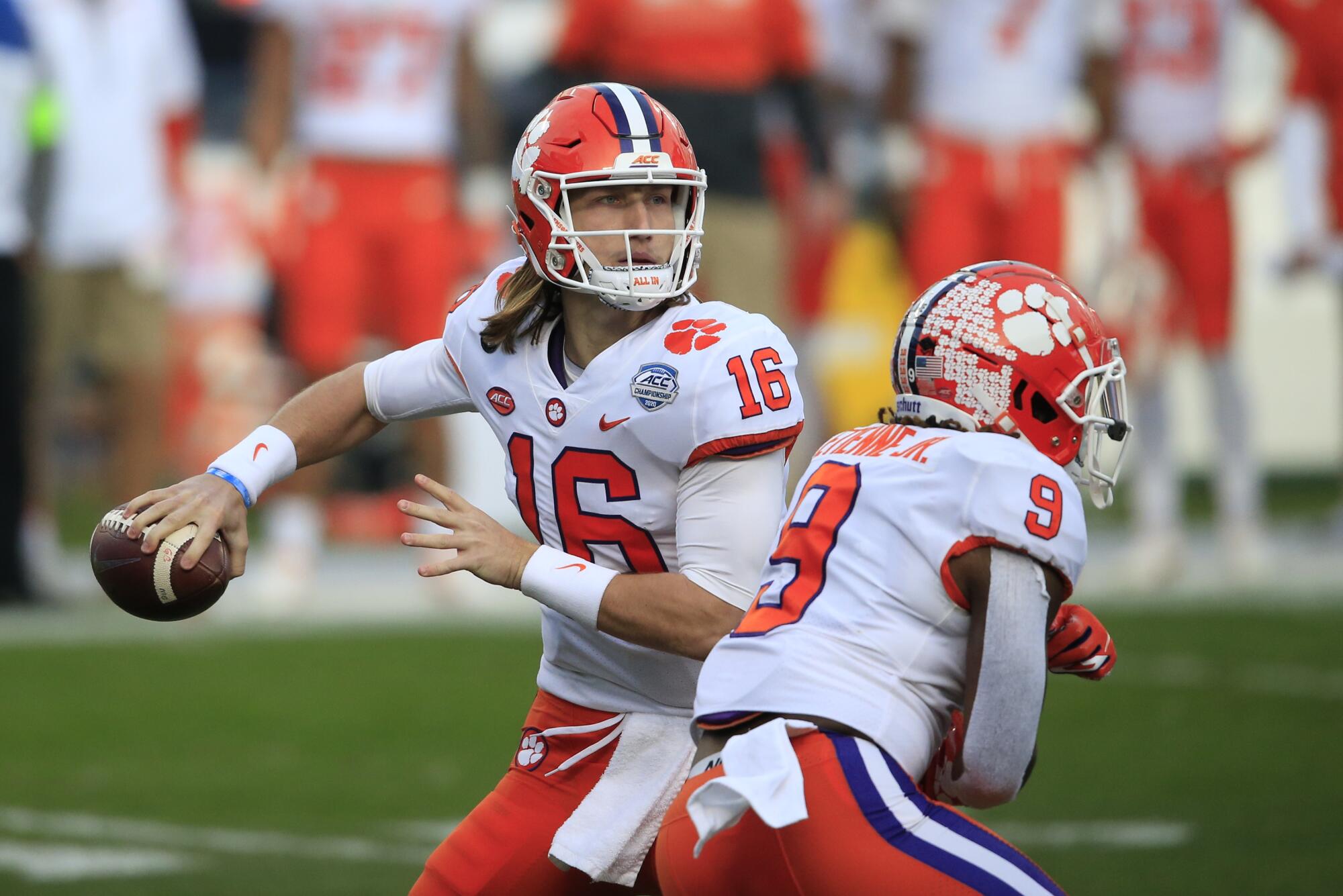
“We definitely aren’t done,” Woods said. “This won’t be the last time you hear from us.”
I asked Cooper, one of the movement’s masterminds, for his evaluation.
“In the grander scheme, what we established in August 2020 is cementing in history that athletes shouldn’t settle for anything less,” Cooper said.
Cooper pointed to the combined statement between #WeAreUnited and #WeWantToPlay that was tweeted by Clemson star quarterback Trevor Lawrence. It stated the goal to “ultimately create a College Football Players Association” that represented Power Five players. Lawrence’s coach, the old-fashioned Dabo Swinney, even said he supported a players association.
With L.A. County the epicenter of the COVID-19 pandemic, common sense and science dictated that the Rose Bowl not host a College Football Playoff semifinal.
Of course, Swinney offered, “That’s different from a union. I will say that.”
Call it what you want. It was enough for Cooper to look back to that July 1 meeting and see success as the season rages on into the teeth of a surging pandemic.
“The fist was thrown in the air when Trevor Lawrence posted a graphic saying we need a players association,” Cooper said. “The simple act of coming together to do it was uncharted waters. We had no idea what was going to happen. That athletes came together and experienced the power of unity — that is victory.”
Part 6: How 2020 was a year of stark contrasts for Los Angeles sports fans.
Sports in 2020 was an emotional rollercoaster of the strange, sad, inspiring and jubilant. Times Sports looks at the year’s biggest moments and storylines.
More to Read
Get our high school sports newsletter
Prep Rally is devoted to the SoCal high school sports experience, bringing you scores, stories and a behind-the-scenes look at what makes prep sports so popular.
You may occasionally receive promotional content from the Los Angeles Times.

